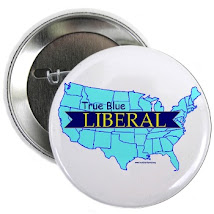In 1964, largely with the Goldwater campaign and the John Birch Society in mind, the Columbia history professor Richard Hofstadter published "The Paranoid Style in American Politics" in that November's issue of Harper's. When I read this essay in college ten years later, with Nixon in the White House, it was already a classic that transcended its original time. I was happy to run into it in electronic form on the Harper's website again last night.
The words "paranoid style" instinctively seem to go with "Trump" as perfectly as words like "vulgarian" and "trumpery" do, but while paranoid style is an ideal frame with which to view the celebration of fear and loathing that we just saw during Trumpapalooza in Cleveland last week, it is not necessarily a style used only by forces on the right.
The words "paranoid style" instinctively seem to go with "Trump" as perfectly as words like "vulgarian" and "trumpery" do, but while paranoid style is an ideal frame with which to view the celebration of fear and loathing that we just saw during Trumpapalooza in Cleveland last week, it is not necessarily a style used only by forces on the right.
Of course this term is pejorative, and it is meant to be; the paranoid style has a greater affinity for bad causes than good. But nothing really prevents a sound program or demand from being advocated in the paranoid style.As I watch the news this morning, waiting for the first official appearance of the Clinton-Kaine ticket in advance of next week's Democratic Convention in Philadelphia and the reporters on CNN are reviewing the preparations for mass demonstrations by hardcore Bernie Sanders supporters who are suspicious of any middle-of-the-road "establishment" candidates, I just read the following paragraph worth quoting in full, to which I will add no further comment of my own.
As a member of the avant-garde who is capable of perceiving the conspiracy before it is fully obvious to an as yet unaroused public, the paranoid is a militant leader. He does not see social conflict as something to be mediated and compromised, in the manner of the working politician. Since what is at stake is always a conflict between absolute good and absolute evil, what is necessary is not compromise but the will to fight things out to a finish. Since the enemy is thought of as being totally evil and totally unappeasable, he must be totally eliminated—if not from the world, at least from the theatre of operations to which the paranoid directs his attention. This demand for total triumph leads to the formulation of hopelessly unrealistic goals, and since these goals are not even remotely attainable, failure constantly heightens the paranoid’s sense of frustration. Even partial success leaves him with the same feeling of powerlessness with which he began, and this in turn only strengthens his awareness of the vast and terrifying quality of the enemy he opposes.Read the whole thing by clicking here. This essay and Hofstadter's book Anti-intellectualism in American Life are among our nation's essential political documents.












No comments:
Post a Comment